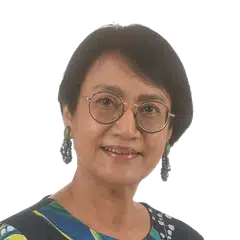Commentary
Are doctors in Singapore being disciplined fairly? Recent penalties for misconduct draw scrutiny
Sign up now: Get ST's newsletters delivered to your inbox

To maintain confidence in its judiciary process, the Singapore Medical Council needs to ensure that penalties meted out are seen to be both fair and consistent.
PHOTO ILLUSTRATION: PEXELS
- A young doctor received a three-year suspension for faking MCs, sparking debate among some doctors who view the penalty as overly severe relative to the offence.
- Concerns arise about inconsistencies in SMC disciplinary tribunal judgments, reminiscent of issues in 2019 that prompted MOH to order a review of the process.
- To maintain confidence in its judiciary process, the Singapore Medical Council needs to ensure that penalties are seen to be both fair and consistent.
AI generated
SINGAPORE – The Singapore Medical Council (SMC) imposed a three-year suspension in September on a young doctor for faking two medical certificates
This is the most severe penalty that SMC can impose on a doctor for wrongdoing, short of striking the person off the register.
In October, the council imposed a similar penalty on Dr Wong Yoke Meng
The fact that SMC’s disciplinary tribunals (DTs) had imposed similar penalties for vastly different wrongdoings has caused a stir among doctors. Many of those who spoke to The Straits Times were concerned that judgment inconsistencies, which prompted the Ministry of Health (MOH) to intervene in 2019, may be resurfacing. At that time, MOH had ordered a review of the sentencing process and called for the establishment of guidelines.
While both doctors in the recent cases are at fault, some doctors told ST that the offences should not be viewed as equally serious.
One doctor faked two MCs to cover the two days she did not turn up for work. The other one, who had previous records of misconduct, administered unnecessary treatments for financial gain and caused harm to patients.
In 2019, then Health Minister Gan Kim Yong told Parliament: “Some sentences are not commensurate with the circumstances of the case. Despite their best efforts, some DTs are too lax, whilst others are too draconian.”
Mr Gan added that it is important to maintain the confidence of doctors and the public. The lack of transparency or perceived fairness “will not only affect doctors, but ultimately compromise the quality of medical care, raising medical costs and harming patient welfare”, he said.
It is certainly worrying that SMC appears to view faking MCs as equally, or even more, severe than causing harm to patients. The actual punishment for Dr Cherida Yong Chun Yin, the houseman who forged the MCs, is six years rather than three because she had been suspended from work since 2022 when the offence was discovered.
What she did was definitely wrong, and such dishonesty must be punished.
At the time of the offence, she was undergoing the mandatory one-year internship at Singapore General Hospital. She did not turn up for work on two days in 2022 – once in June and once in September.
The first fake MC was submitted only in November that year, with no explanation for the delay. The hospital checked and found the MC to be fake. It also verified that the second MC was a forgery.
SMC sought a maximum period of suspension or for her to be struck off the register.
The DT said: “She pleaded guilty at the earliest opportunity and cooperated fully with the investigation. The dishonest conduct, while grave, was confined in scope and context.
“There was no manipulation of professional licensing or educational credentials, no repeated misconduct beyond the two known incidents, and no benefit obtained in the form of appointment, remuneration, or institutional status.”
However, it added that “the egregious nature of the dishonesty, consisting of repeated acts of fabricating official documentation... elevates the gravity of the misconduct (so) that no downward calibration is warranted”.
The DT also said that what she did “compromises her professional reputation, erodes institutional trust, and undermines the credibility of medical certification processes” and that her punishment should also act as a deterrence to other doctors.
Hence, it ruled that Dr Yong merited a three-year suspension for each incident, with the suspensions to run concurrently. She also has to pay the cost of the proceedings, including fees for SMC’s lawyers.
In reality, however, she had already been suspended for nearly three years while the disciplinary proceedings were ongoing, and her official three-year suspension was scheduled to start 40 days after the tribunal’s judgment in July.
Six years seems rather excessive when compared with the penalties given to other doctors whose misconduct appears more serious, particularly when actual harm was caused to patients.
Furthermore, guidelines issued in 2020 by a work group headed by Judge of Appeal Judith Prakash, set up by MOH in 2019 to rectify inconsistencies in SMC disciplinary judgments, state that when the harm done is low, but the culpability is high, a suspension of one to two years is justified.
By contrast, SMC’s recommended penalty for the houseman – suspension of three years or striking off – is indicated when both harm and culpability are high.
Let’s compare this judgment with other cases where doctors were given three-year suspensions.
In November 2023, Dr Maninder Singh Shahi was suspended for three years
MOH, obviously finding the penalty too lax, intervened in May 2024 by revoking the doctor’s licence – the first time it had done so for a doctor providing outpatient medical services.
Also in 2023, psychiatrist Ang Yong Guan received a two-year suspension
The cause of death was certified as “multi-organ failure with pulmonary haemorrhage, due to mixed drug intoxication”.
The suspension was increased to three years
The judges said they could not ignore the fact that the patient’s cause of death was found to have resulted from the combination of multiple drugs, whose prescription Dr Ang was unable to justify. They highlighted Dr Ang’s own concession that 60mg of mirtazapine per night was on the “edge of the killing range”.
The judgment stated: “It is simply not for a doctor to dice with the life of a patient on the patient’s behalf, especially where the risks inherent in a course of treatment are as significant as in the present case, no matter how well intentioned or justifiable the doctor thinks that it is worth the gambit.”
In a recent case in August, a patient had suffered severe complications after being given azathioprine, an immunosuppressant, by dermatologist Khoo Boo Peng. The patient was admitted to Mount Elizabeth Novena Hospital and diagnosed with bone marrow suppression and pancytopenia, a condition of low levels of red and white blood cells as well as platelets.
Dr Khoo was suspended for 11 months and 13 months on two charges, to run consecutively. However, as the incident occurred in 2020 and there was a long delay in judgment, the DT applied a reduction, resulting in a total suspension of 14 months instead of 24 months.
The tribunal said it could not excuse the doctor for not considering a “potentially life-threatening yet common side effect” of the medication. “There was actual personal injury and substantial potential for serious personal injury,” it added.
Compared with those cases, the three-year suspension (or de facto six years) against Dr Yong for faking MCs does seem rather disproportionate.
Back in 2019, then Senior Minister of State for Health Edwin Tong attended more than 30 sessions involving more than 1,000 doctors to hear their views on SMC’s disciplinary process.
Among issues raised was the belief that there was bias and that some doctors had been targeted while others received more lenient sentences. While Mr Tong thought that was more perception than reality, he admitted that it was a problem that must be addressed.
To maintain confidence in its judiciary process, SMC needs to ensure that penalties meted out are seen to be both fair and consistent.
The fake MC case also brings to mind reports of young lawyers who plagiarised to pass their university exams. That was dishonesty with personal gain, and their applications to be called to the Bar were delayed.
In one case, two lawyers were called to the Bar after a delay of several months – one admitted to plagiarism, and the other to shoplifting and drug taking.
In granting their applications, Chief Justice Sundaresh Menon made a highly pertinent comment.
He said: “Everyone makes mistakes. The real question is whether one demonstrates the capacity to learn from one’s mistake.”
SMC penalties: What do they include?
Requiring the doctor to give a written undertaking to abstain from the conduct complained of;
Issuing a written censure against the doctor;
Imposing a fine not exceeding $100,000;
Setting conditions or restrictions on what the doctor can do;
Changing the doctor’s registration status from fully registered to conditionally registered (practise under supervision);
Suspending the doctor for up to three years; and
Removing the doctor’s name from the medical register, which means the doctor can no longer practise. The term “struck off” is used when a doctor is deregistered as a penalty, as opposed to other reasons, such as voluntary deregistration.
The workgroup set up by MOH and headed by Justice Prakash said that a doctor should be struck off the register if the harm was severe and the culpability was high. Depending on the case, that could also merit a three-year suspension.
Three-year suspensions are also indicated where the harm was severe, and the culpability was medium; or where the harm was moderate, and the culpability was high.
Where the harm was slight and culpability was low, the penalty should not include suspension.
Other permutations would merit a one- to two-year suspension.
SMC penalties for doctors guilty of wrongdoing
The penalties that the Singapore Medical Council, the watchdog for the medical profession, can impose include:
Requiring the doctor to give a written undertaking to abstain from the conduct complained of;
Issuing a written censure against the doctor;
Imposing a fine not exceeding $100,000;
Setting conditions or restrictions on what the doctor can do;
Changing the doctor’s registration status from fully registered to conditionally registered (practise under supervision);
Suspending the doctor for up to three years; and
Removing the doctor’s name from the medical register, which means the doctor can no longer practise. The term “struck off” is used when a doctor is deregistered as a penalty, as opposed to other reasons, such as voluntary deregistration.
The workgroup said that a doctor should be struck off the register if the harm was severe and the culpability was high. Depending on the case, that could also merit a three-year suspension.
Three-year suspensions are also indicated where the harm was severe, and the culpability was medium; or where the harm was moderate, and the culpability was high.
Where the harm was slight and culpability was low, the penalty should not include suspension.
Other permutations would merit a one- to two-year suspension.



